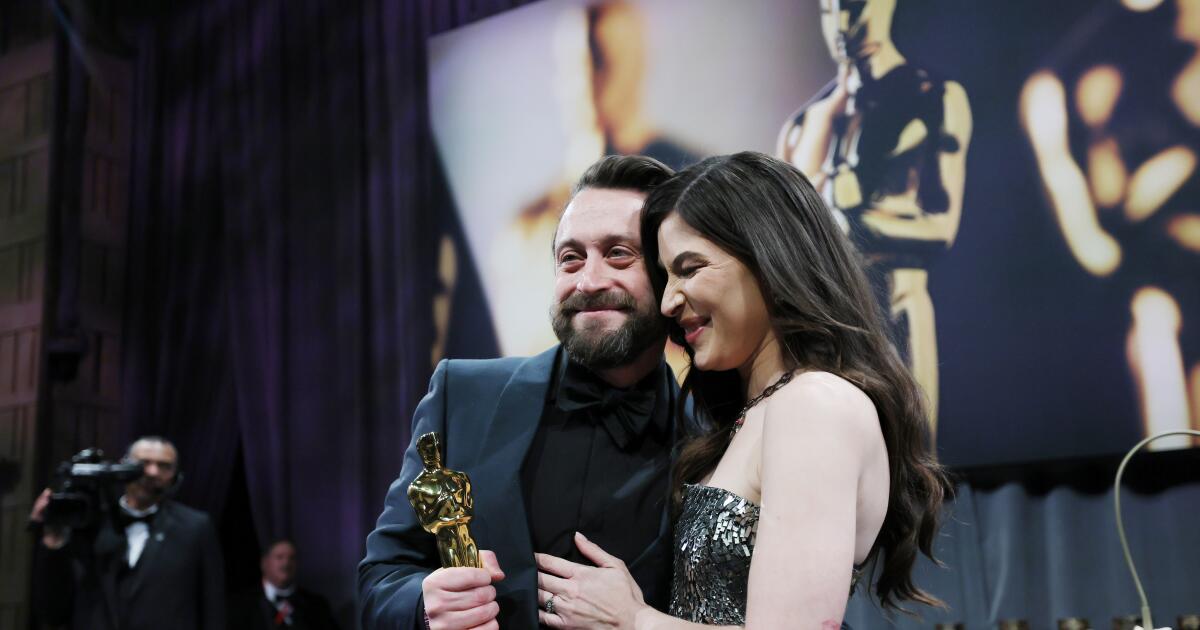Kieran Culkin and Jazz Charton’s Emmys baby is here, Sarah Snook says
Kieran Culkin and wife Jazz Charton made good on their Emmys pact, recently welcoming their third child, according to the former’s “Succession” co-star.
Oscar and Emmy winner Culkin’s on-screen sister Sarah Snook, also an Emmy-winning actor, announced the arrival of the couple’s newest child while speaking to Access Hollywood on Monday. “I met the little baby, it’s so cute,” she said during the premiere of Peacock’s “All Her Fault.”
“They’re very happy and so cute,” she added.
A representative for Culkin did not immediately respond to a request for confirmation. Charton, a contributor for the Financial Times, has not yet publicly addressed the arrival of their littlest one.
“A Real Pain” star Culkin, younger brother of “Home Alone” star Macaulay Culkin, tied the knot with Charton in 2013. They share two children, Kinsey Sioux and Wilder Wolf, and lovingly teased a plan to grow their family during the 75th Emmy Awards in January 2024.
Culkin, 43, famously used part of his acceptance speech for the lead actor prize to remind Charton, 37, of the deal they had struck prior to the ceremony. As he acknowledged his wife and children, Culkin declared, “I want more.”
“You said ‘maybe,’ if I win! I love you so much,” he told Charton from stage.
Charton confirmed that baby No. 3 was on the way in late September, sharing a cheeky Instagram post that also tapped into her well-documented fan love for “Matrix” star Keanu Reeves. “Saw Keanu Reeves on broadway and now I’m 9 months pregnant,” she captioned her post, which featured photos of her baby bump, “This is very on brand for me.”
She revealed she was expecting amid the debut of Reeves and longtime “Bill & Ted” collaborator Alex Winter’s production of “Waiting for Godot.” She quipped in her caption that she had “made a deal with this baby to let me make it to this [show] before labor, not sure what it wants in return but I’m CLEARLY a woman of my word.”
Snook, the first to break the couple’s baby news, has remained close to her “Succession” co-star since the hit HBO drama concluded two years ago. Culkin and Snook respectively starred as Roman and Shiv Roy, two of numerous potential — ahem — successors to media mogul Logan Roy (Brian Cox). “Succession” aired from 2018 to 2023 and won a total of 19 Primetime Emmy Awards, including acting prizes for Culkin, Snook and co-stars Jeremy Strong and Matthew Macfadyen.
With the arrival of Culkin and Charton’s third child, it’s clear that the “Succession” legacy now extends past powerhouse performances, viral memes and memorable lines. Anyone got a ludicrously capacious baby bag?
